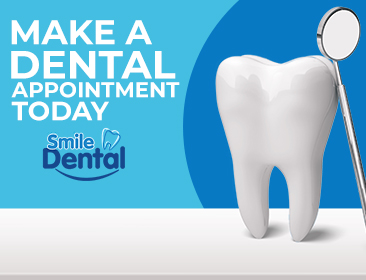Did you know that there are a number of medical conditions that can impact oral health? If you didn’t, don’t worry — you’re not alone. Most people don’t realize that there is a connection between certain medical conditions and oral health. In this blog post, we will discuss some of the most common medical conditions that affect oral health. We will also provide some helpful tips for how to maintain good oral health despite these conditions.
Systemic Lupus Erythematosus
Systemic lupus erythematosus (SLE) is a chronic autoimmune disease that can affect any part of the body. In SLE, the immune system attacks healthy cells and tissues. SLE can affect different parts of the body in different people, including the skin, joints, kidneys, and brain.
One of the most common symptoms of SLE is oral ulcers. These ulcers can be painful and can make it difficult to eat or speak. Other common symptoms of SLE include fatigue, fever, joint pain, and rash. There is no cure for SLE, but there are treatments available that can help manage the symptoms.
Are you wondering how SLE can cause oral ulcers, which are painful and can make it difficult to eat or speak. Other common symptoms of SLE include fatigue, fever, joint pain, and rash.
If you have SLE, it is important to see your dentist regularly and to practice good oral hygiene. You should also avoid smoking and using tobacco products, as these can make SLE symptoms worse.
Rheumatoid Arthritis
When people think about what medical conditions affect oral health, rheumatoid arthritis isn’t one that usually comes to mind. Rheumatoid arthritis (RA) is a chronic autoimmune disease that causes inflammation of the joints. RA can also affect other parts of the body, including the skin, eyes, and lungs. RA is a progressive disease, which means that it gets worse over time.
The most common symptom of RA is joint pain and stiffness. Other common symptoms include fatigue, fever, and weight loss. There is no cure for RA, but there are treatments available that can help relieve symptoms and slow the progression of the disease.
RA can impact oral health in a number of ways. One of the most common symptoms of RA is joint pain and stiffness. This pain and stiffness can make it difficult to open your mouth wide enough to brush your teeth and gums properly. In addition, RA can cause inflammation of the gums, which can lead to gum disease. Gum disease is a serious infection that can cause tooth loss and other health problems.
Sjögren’s Syndrome
Sjögren’s Syndrome is a chronic autoimmune disease that causes inflammation and damage to the glands that produce tears and saliva. Sjögren’s Syndrome can affect different parts of the body in different people, including the eyes, mouth, and lungs. The most common symptoms of Sjögren’s Syndrome are dry eyes and dry mouth. Other common symptoms include fatigue, joint pain, and chest pain.
One of the most common ways that Sjögren’s Syndrome can impact oral health is by causing dry mouth. A dry mouth can lead to a number of problems, including bad breath, cavities, and gum disease.
Diabetes
Diabetes is a chronic condition that occurs when there is too much sugar in the blood. Diabetes can affect different parts of the body in different people, including the kidneys, heart, eyes, and nerves. The most common symptom of diabetes is high blood sugar levels.
The chance for people with diabetes to develop periodontal (gum) disease is higher than those without it. This can not only lead to pain, bad breath that doesn’t go away, and chewing difficulties but even tooth loss. Diabetes also slows down healing which means treatments may be less effective when treating this type of infection in you or your loved one’s mouth.
Inflammatory Bowel Disease
Inflammatory Bowel Disease (IBD) is a chronic condition that causes inflammation of the bowel. IBD can affect different parts of the bowel in different people, including the small intestine and the colon. The most common symptoms of IBD are abdominal pain, diarrhea, and weight loss.
IBD patients are at risk for developing dental conditions such as tooth decay and periodontitis. This ultimately means that people with IDB are at a higher risk of tooth loss. It is also important to note that smokers who also have IBD are more likely to have oral health issues.
Chronic Kidney Disease
Chronic kidney disease (CKD) is a condition that affects the kidneys and their ability to filter waste and toxins from the blood. CKD can progress over time and eventually lead to kidney failure. Symptoms of CKD include fatigue, nausea, vomiting, loss of appetite, and difficulty concentrating. Treatment for CKD includes medications to help control blood pressure and cholesterol levels, as well as diet and lifestyle changes.
Patients with chronic kidney disease are at risk for poor oral health because they often experience inflammation, infections, and other systemic effects that lead to hardening of the arteries as well.
Research has shown that people who suffer from chronic kidney disease have higher rates than average people not only in dental problems like decayed or missing teeth but also attachment loss (the fundamental structure between two structures where one has been lost) among many others including mouth lesions – which can be caused by gum disease-related toxins released during decay processes within bones around the jaw.
In addition, poor oral health is much more dangerous for those with kidney disease because they are often elderly or have other illnesses that compromise their immunity.
A Dentist in Oshawa You Can Trust
Here at Simcoe Smile Dental, we understand that oral health goes beyond daily dental hygiene habits. Now that you know more about how medical conditions can affect oral health, you can have a better understanding of the side effects that can impact the gums and/or teeth. We have experience working with patients who suffer from a variety of health conditions. If you’re interested in learning more about our services, contact us today.




